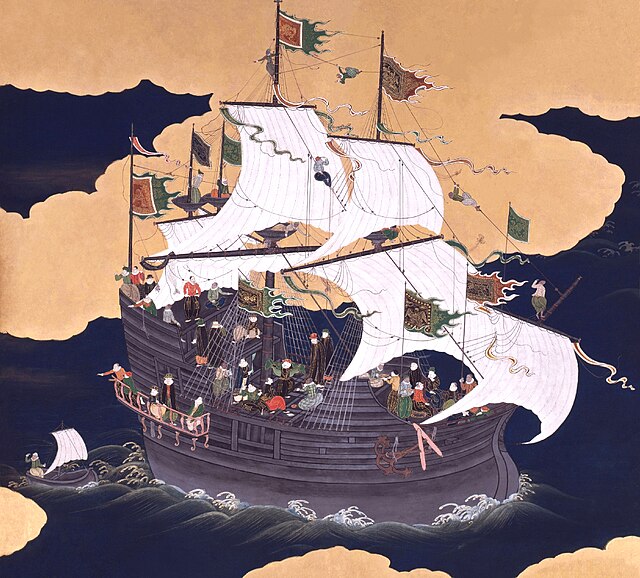Globalization, or globalisation, is the process of interaction and integration among people, companies, and governments worldwide. The term globalization first appeared in the early 20th century, developed its current meaning sometime in the second half of the 20th century, and came into popular use in the 1990s to describe the unprecedented international connectivity of the post-Cold War world. Its origins can be traced back to 18th and 19th centuries due to advances in transportation and communications technology. This increase in global interactions has caused a growth in international trade and the exchange of ideas, beliefs, and culture. Globalization is primarily an economic process of interaction and integration that is associated with social and cultural aspects. However, disputes and international diplomacy are also large parts of the history of globalization, and of modern globalization.
Portuguese carrack in Nagasaki, 17th-century Japanese Nanban art
Native New World crops exchanged globally (clockwise): Maize, tomato, potato, vanilla, rubber, cacao, tobacco
Lisbon in the 1570s had many Africans.
The 1843 launch of the Great Britain, the revolutionary ship of Isambard Kingdom Brunel
The post–Cold War era is a period of history that follows the end of the Cold War, which represents history after the dissolution of the Soviet Union in December 1991. This period saw many former Soviet republics become sovereign nations, as well as the introduction of market economies in eastern Europe. This period also marked the United States becoming the world's sole superpower.
Nelson Mandela casting his vote in the 1994 South African elections.
Image: Boris Yeltsin 22 August 1991 1






